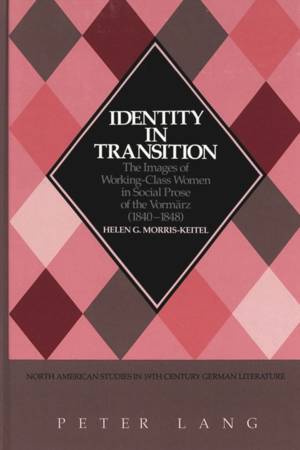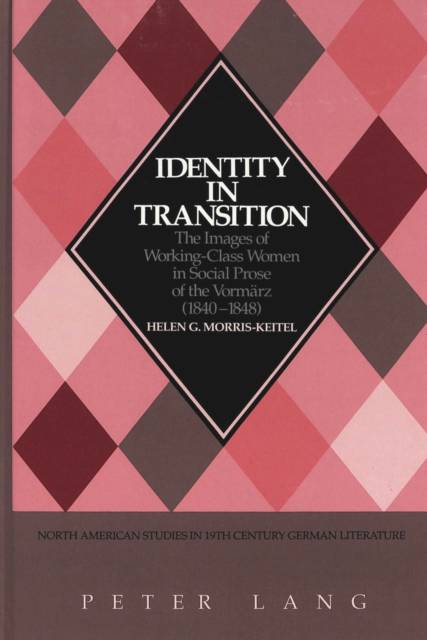
- Afhalen na 1 uur in een winkel met voorraad
- Gratis thuislevering in België vanaf € 30
- Ruim aanbod met 7 miljoen producten
- Afhalen na 1 uur in een winkel met voorraad
- Gratis thuislevering in België vanaf € 30
- Ruim aanbod met 7 miljoen producten
Zoeken
Identity in Transition
The Images of Working-Class Women in Social Prose of the Vormaerz (1840-1848)
Helen G Morris-Keitel
€ 71,45
+ 142 punten
Omschrijving
A detailed analysis of the narration of working-class women's lives in social prose by Ernst Dronke, Adolf Glassbrenner, Louise Otto, Georg Weerth and Ernst Willkomm reveals that in most instances, behind a veil of socio-historical details, there lies an ideal, universal notion of womanhood that revolves around children, the home, and religion. This realization has important ramifications for the understanding of social prose as a genre, as well as for the reinforcement and universalization of bourgeois gender roles in mid-nineteenth-century Germany.
Specificaties
Betrokkenen
- Auteur(s):
- Uitgeverij:
Inhoud
- Aantal bladzijden:
- 208
- Taal:
- Engels
- Reeks:
- Reeksnummer:
- nr. 15
Eigenschappen
- Productcode (EAN):
- 9780820422565
- Verschijningsdatum:
- 1/02/1995
- Uitvoering:
- Hardcover
- Formaat:
- Genaaid
- Afmetingen:
- 160 mm x 230 mm
- Gewicht:
- 459 g

Alleen bij Standaard Boekhandel
+ 142 punten op je klantenkaart van Standaard Boekhandel
Beoordelingen
We publiceren alleen reviews die voldoen aan de voorwaarden voor reviews. Bekijk onze voorwaarden voor reviews.











